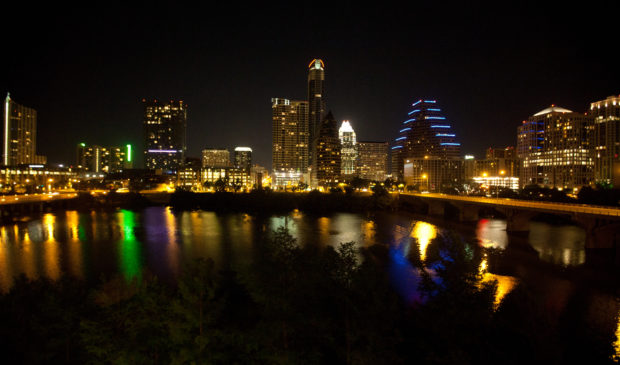Virtual reality expected to help city attract billions in foreign investment
Monday, November 28, 2016 by
Chad Swiatecki Through the use of virtual reality, the city of Austin is turning to the thriving local video game industry to help attract overseas investors and billions of dollars in new economic development money.
The hope is that local developers can create a mobile app that will utilize virtual or augmented reality technology to showcase some of Austin’s most attractive development projects that are waiting for big investors to get them moving.
Officials in the city’s Economic Development Department said there is an appetite among foreign investors for business opportunities in the U.S., but many are unfamiliar with the characteristics of American cities other than metropolises on the coasts.
Mayor Steve Adler said during a trip to Asia this summer that foreign investors are interested in the types of skills and opportunities Austin has to offer but were largely unaware of the city and its culture, which is an important consideration in most overseas business moves.
A request for qualification issued by the Economic Development Department on Nov. 8 says: “The City seeks to become actively engaged in the attraction of foreign direct investment by capitalizing on inbound international events like SXSW, Formula 1, and others to use this app for site visits, prospecting partners, and businesses considering expansion to Austin.”
A hard release date for the app just prior to next year’s South by Southwest festival means that the chosen firm, to be selected on Dec. 2, will have to work fast to have the finished product ready for one of the city’s biggest annual tourism events.
The RFQ also notes that the city is working on assembling a portfolio of seven city-affiliated development projects to be highlighted in the mobile app. David Colligan, Austin’s manager of global business recruitment and expansion, said scouting for other projects is taking place as well.
“When the mayor went on his trip to Asia, we didn’t know we’d get as much interest as we did, but the problem is that we’re nowhere near the attention span of most of these people because they mostly know the coasts,” Colligan said. “We’ve started scouting for projects from areas like real estate, product development and venture capital that we can showcase.”
Colligan said that the city’s economic development officials typically see a spike in inquiries for foreign direct investment and company relocation during SXSW and the annual Formula 1 racing event, both of which draw large audiences from all over the world.
The virtual reality app, which will also include key information on properties, companies and ownership of highlighted projects, will be a way to put attractive opportunities in front of likely investors and keep them engaged after they depart Austin. Colligan said the total budget for the app is between $40,000 and $50,000.
To the benefit of the city’s creative community, city leaders have shown an interest in highlighting music venues, theaters and other spaces seeking partners to expand or change their business models as Austin continues to grow. Adding those types of business opportunities to the portfolio that is put in front of investors helps to spread the city’s global brand as a music and creative hot spot, Colligan said.
“We know there’s a strong need out there for music venues, whether it’s rehab and expansion or doing things like converting their spaces into a cafe for a daytime audience,” he said. “With all of this, we’re trying to let the world know that Austin is ready to play, not just with people who can move millions of dollars around but at a level of people who play in the billions.”
Foreign investment would be one new way to stimulate a creative sector that is feeling a pinch, whether it be the city’s sputtering music economy or the threat that redevelopment and rising rents pose to the local fine arts community.
More details are expected early next year on the $10 million bond investment program orchestrated by the city to buy the properties housing endangered music venues to keep them from being displaced. If that timeline holds, visitors during SXSW could have a chance to take some ownership in Austin’s music scene, which isn’t designed to produce impressive returns but could be attractive in terms of prestige.
Don Pitts, Austin’s music program manager, said the city is wise to take advantage of its thriving virtual reality community – estimated by industry watchers as the second-largest in the U.S. – to advance business efforts and the awareness of Austin music.
“VR could change everything in music,” Pitts told the Austin Monitor via text. “How we consume, create, perform, share, teach and learn music. I think consumption of VR will center around live music, which has many separate paths from there such as music videos, social metaverse experiences and more.”
Photo by Ed Schipul made available through a Creative Commons license.
The Austin Monitor’s work is made possible by donations from the community. Though our reporting covers donors from time to time, we are careful to keep business and editorial efforts separate while maintaining transparency. A complete list of donors is available here, and our code of ethics is explained here.
You're a community leader
And we’re honored you look to us for serious, in-depth news. You know a strong community needs local and dedicated watchdog reporting. We’re here for you and that won’t change. Now will you take the powerful next step and support our nonprofit news organization?






